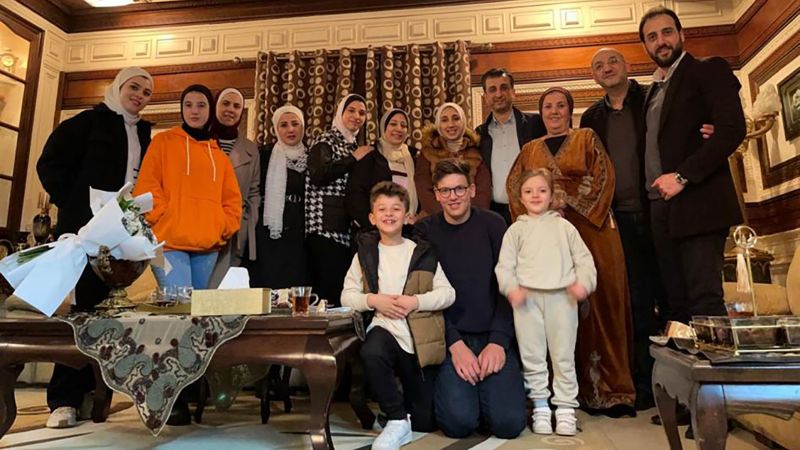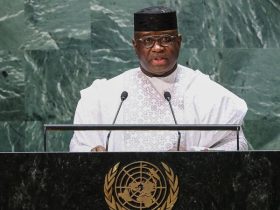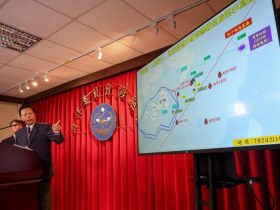Thousands of miles away from the brutality of war in Gaza, Tariq Hamouda and his wife Manal are in disbelief over the loss of three generations of their family.
The Palestinian Americans, who live in Maple Grove, Minnesota, say it’s been over a week since they learned 42 relatives were killed in the ongoing war between Israel and Hamas, and they’re still unable to fully comprehend the news.
Hamouda says his wife, whose maiden name is Saqallah, lost four brothers, a sister and most of their children when two explosions destroyed the Saqallah family compound on October 19 in the Sheikh Ejleen neighborhood of Gaza City.
Hamouda and the family say it was an Israeli airstrike. Israel has launched numerous airstrikes on Gaza City since October 7, including multiple strikes in the area that day.
“She loves every member of her family. She spent the summer with them,” explained Hamouda, who says he and his wife are originally from the same neighborhood in Gaza but have lived in Minnesota since 2004.
There has been fear and numerous conflicts between Israel and militant groups in Gaza since then, but nothing like this, he says.
Israel declared war on Hamas on October 7, after the militant group broke through the barrier that separates Gaza from Israel and killed more than 1,400 people, including civilians and military personnel, and abducted over 220 others, according to Israeli authorities.
In response, Israel launched devastating airstrikes on Gaza. It says it wants to destroy Hamas, which governs the coastal territory. But 2.2 million Palestinians living there, unable to escape with closed Israeli and Egyptian border crossings, are caught in the crossfire.
Israeli airstrikes have killed at least 8,485 Palestinians and injured more than 21,000 others, according to the latest figures released by the Palestinian Ministry of Health in Ramallah, drawn from sources in the Hamas-controlled enclave. Another 1.4 million people have been internally displaced, the United Nations Office for the Coordination of Humanitarian Affairs says, after the IDF warned residents in northern Gaza to move south.
But Hamouda doesn’t have time to properly mourn the dead, he says, as he is still worried about what will happen to those who’ve so far survived.
‘Your whole world stops’
In South Florida, Manal’s cousin Eyad Abu Shaban is equally distraught. “It’s like your whole world stops,” he said.
“It’s not one, two, three, or four – it is 42 members, it’s really hard to cope with.”
Abu Shaban says the deceased range in age from three months to 77. They were all staying in a single compound. His uncle, Essam Abu Shaban, wife Layla Saqallah and their son Ahmed were among those killed. To avoid Israeli airstrikes, they had evacuated the nearby Tel El Hawa neighborhood and sought refuge in the Saqallah’s home, Abu Shaban says.
Before the airstrikes, the IDF called to say there could be military activity in the area, but they were never told to evacuate their home, Hamouda says surviving family members told him.
“They have bombed houses with warnings and without warnings,” he said, lamenting there is a lot of fear, confusion and nowhere to go.
His mother-in-law was on a balcony when the first strike hit, Hamouda says. She was able to flee with the help of a relative who also survived.
A second strike completely destroyed the compound, killing dozens of relatives, he says.
“My mother-in-law said her sons tried to evacuate, but they had no time,” Hamouda said, adding that his family was not involved in militant activity and that they “had nothing to do with anything at all.”
Abu Shaban, a Boca Raton real estate developer, said the family were only civilians, and counted numerous medical professionals among them.
Of Manal’s four brothers – Saed, Omar, Ameed and Khorsheed – three were eye doctors; the other was an ENT doctor. Hamouda says they operated Gaza’s largest network of family-owned eye clinics.
“We have no Hamas members [in our family]. They’re just ordinary people: doctors and grandmothers and grandfathers and uncles and aunts and children,” Abu Shaban said.
“I mean, if you want to exterminate Hamas then you should go to the source.”
Pleading for a ceasefire
The Maple Grove community has since rallied around the Hamouda family, showering them with love and support.
Community members visited the nearby Brooklyn Park Islamic Center last week to pray for the family. A staff member from Sen. Amy Klobuchar’s Minnesota office even called to offer condolences and extend an offer of assistance, Hamouda says.
But all Hamouda and Abu Shaban want is for the killing to stop.
“We’ve never seen in this day and age where the whole world is watching innocent people just being torn apart. Families, whole families, just wiped off the map,” Abu Shaban said.
“I want everybody to know that the people of Gaza are just like them, they hurt, they bleed, they have families, they have feelings.”
Photos and videos of the conflict flooding social media are too much to bear, he says.
Activists, human rights groups and international officials have all called for a ceasefire, but the war rages on, and has witnessed a new phase of dangerous ground operations.
Until the killing stops, Abu Shaban says his family still reels: “I’m still in this nightmare. I haven’t woken up yet.”






